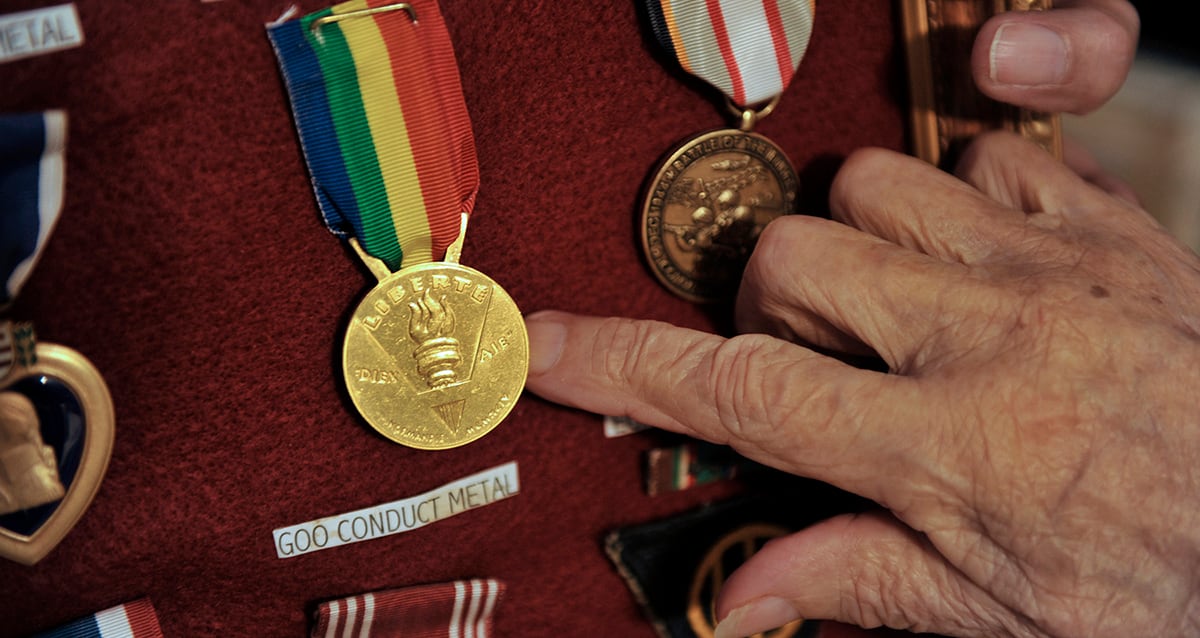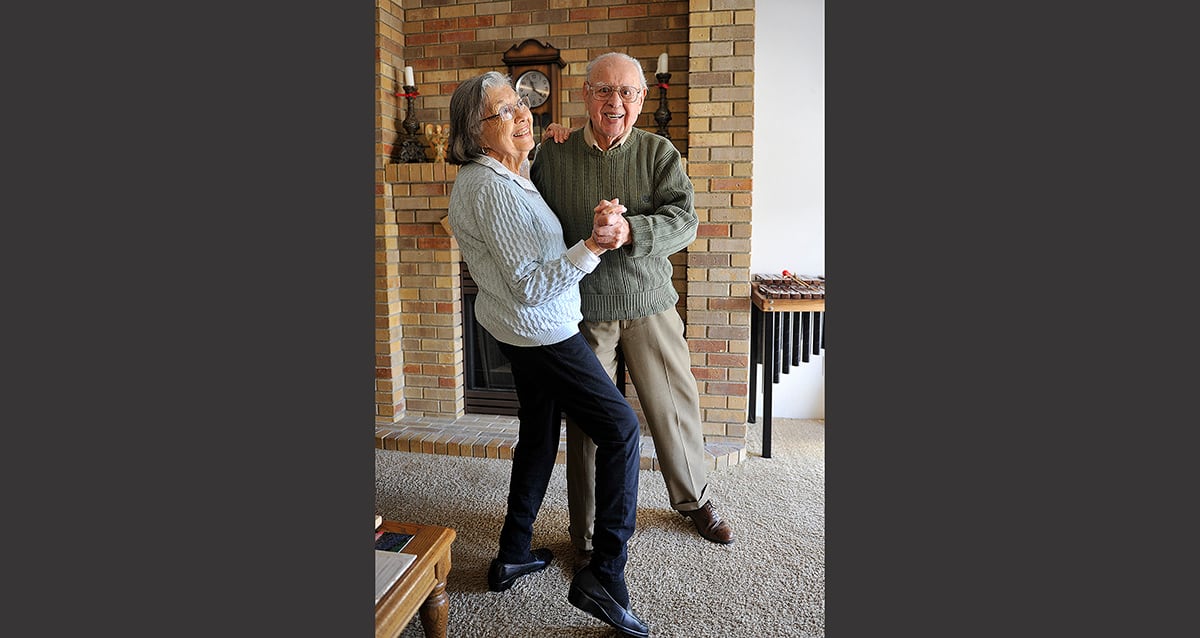MEDFORD, Ore. — Frank Hernandez had survived a shell hit in France that sent shrapnel into his hip and knee, bombs raining down around him as he hid in a Belgian cellar, and a bullet that struck his canteen while he lay trapped under machine gun fire in a German beet field.
But then in 1944, he and a handful of other soldiers guarding an outpost in Germany were surrounded by Nazi SS soldiers.

The Nazi in charge told one of his underlings to shoot Hernandez. The young soldier lined up Hernandez near a wall and put his gun to the American’s head.
“I was on my knees praying and praying and praying,” recalled Hernandez. “He couldn’t pull the trigger.”
The young soldier was then ordered to march the prisoners to a German prisoner-of-war camp.
On the way, Hernandez planned to kill him with a gun he had tucked into the back of his belt. But he decided not to shoot the young German who had spared his life, and instead dropped his gun, unnoticed, in a field.
Meanwhile, two American soldiers had escaped before the Nazis surrounded the outpost. They made their way back to their commander and reported that the Nazis killed the men trapped there.
“They sent a report to my mom that I had been killed,” Hernandez said.
He arrived at the Stalag 11A prison camp, where men slept on tiers of three boards stacked like bunk beds.
“We only received one can of soup a day. Even the Germans didn’t have food,” Hernandez said, noting that the German war machine was crumbling.
Prisoners were sometimes taken out to work in fields to pick vegetables. When they came back with potatoes or zucchini, Hernandez would ask to eat the peels.
Many prisoners who had been at the camp longer had dysentery and spent most of their time sitting in a line of old outhouses. Triggered by infection in the digestive system, dysentery leads to abdominal pain and bloody diarrhea.
After Hernandez was in the camp for six weeks, a German officer drove to the American front line with a white flag and surrendered, telling the Americans about the prisoners who were still locked up in Stalag 11A.
The Americans found the camp and began battering through the gates.
“We were all waiting for them to break the gates. They finally did it,” Hernandez said. “Some homes were next to the prison. When they were liberated, some of the prisoners ran to the houses and started eating — and they died.”
The so-called refeeding syndrome can lead to death as lowered levels of electrolytes in the body cannot quickly adapt to increased quantities of food, leading to cardiovascular and neurological failures.
Hernandez survived, but had dropped below 100 pounds.
He and other prisoners boarded a plane to France and heard Winston Churchill announcing on the radio that the war was over.
Once in France, the liberated prisoners-of-war were quarantined in an army camp. They were sprayed for lice and put on a restricted diet with only small bits of food for 10 days.
After two weeks, Hernandez was able to go to England, but learned there weren’t enough ships to carry all the American soldiers home.
He accepted a ride on a flat-bottomed boat that had been used to land troops on the beaches of Normandy during the Allied invasion of France. The boat hit rough waters in the Gulf of Mexico, and warnings went out that the vessel was breaking up. But the boat held together and reached a harbor in Virginia, where cheering crowds met the former prisoners-of-war.
Hernandez boarded a train. But after days of travel in which he only reached Ohio, he left the train and hitchhiked to California. Drivers were more than happy to pick up men in uniform who were trying to get home.
One man gave Hernandez a ride to his uncle’s house in San Diego and asked to stay and see the family’s reaction. When his cousin opened the door, she started screaming.
Hernandez’s uncle gave him a ride to where his parents were living across the border in Tijuana, Mexico.
Although Hernandez had been born in San Diego, his parents had returned to their home country of Mexico during the Depression. His father had lost his job on a California farm to people willing to work for a pittance after fleeing Dust Bowl states.
Hernandez had lived for years with his parents in Mexico before returning to America, where he was working when he got drafted into the war.
Upon returning to his parents’ house in Tijuana, Hernandez cried with joy as he was surrounded by family and friends.
“I was happy to be back,” he said.
He later attended the California School of Fine Arts, intending to be a commercial artist, but his dream ended when he was diagnosed as partially color blind.
Hernandez launched a successful business, specializing in building custom kitchens. He won customers by making detailed drawings of kitchen plans.
“They were impressed with the way the kitchen would look and they would hire me,” he said.
He married his wife, Carmen, in 1948 and they had three daughters and three sons. The pair have won awards in ballroom dancing.
“He was the best dancer in the dance hall,” Carmen said. “All the girls stood in line to dance with him.”
The couple eventually relocated to the town of Rogue River and then to Medford to be closer to family.
Carmen, 89, and Frank, 93, will celebrate their 70th anniversary in April.
“We’re still dancing,” said Carmen.
Information from: Mail Tribune, http://www.mailtribune.com/




